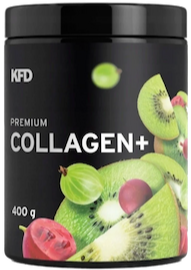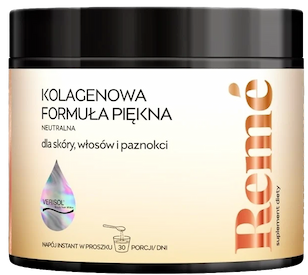Lysine benefits, side effects, and best supplements 2025
Lysine is a small amino acid that is important for your body. More so than you might think.


Learn more about our editorial process
.

Learn more about our editorial process
.

Learn more about our editorial process
.

Learn more about our editorial process
.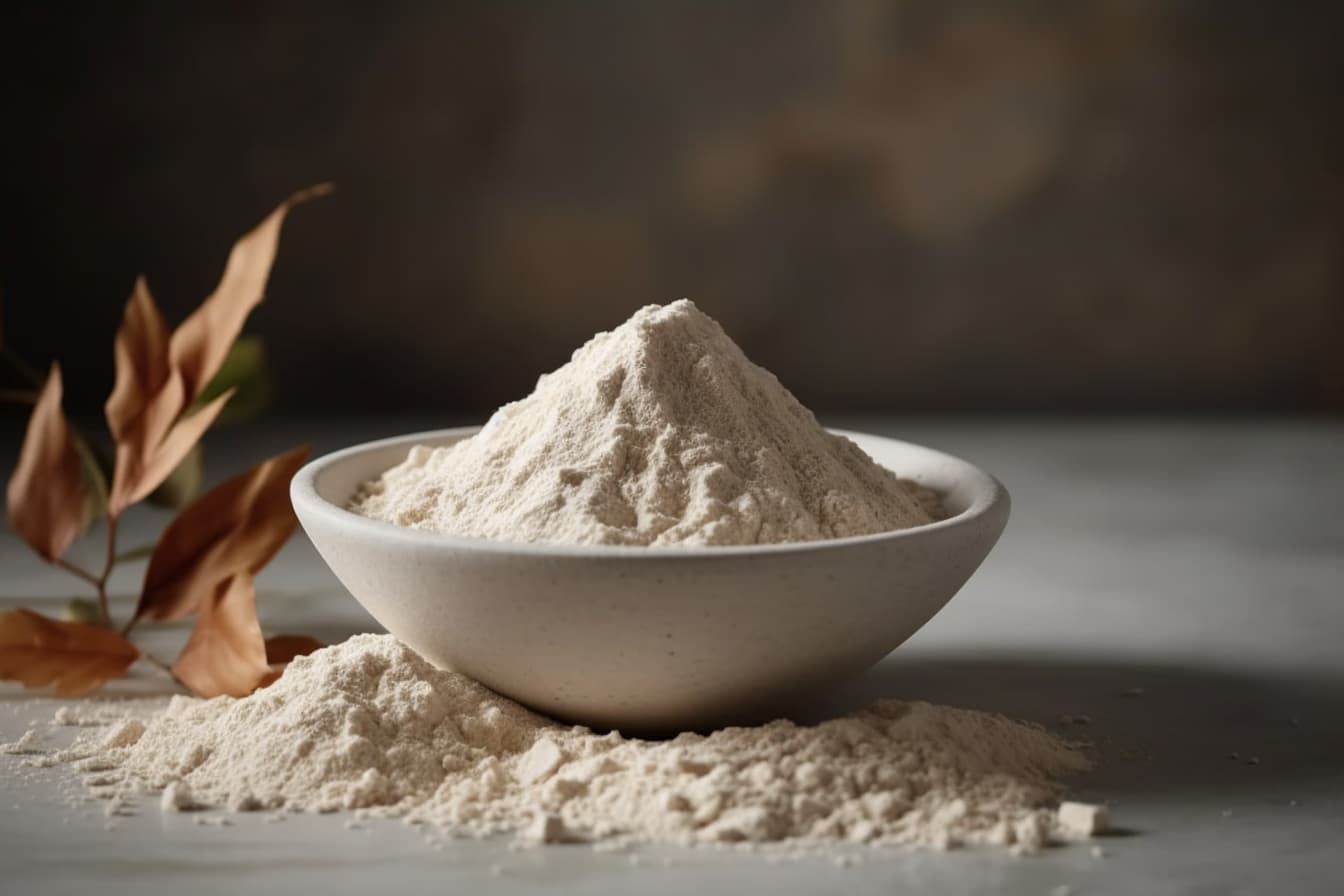
Why you can trust us
Articles on Natu.Care are written based on scientific research, data from government websites and other reliable sources. The texts are written in cooperation with doctors, nutritionists and other health and beauty experts. Articles are reviewed before publication and during significant updates.
.Learn more about our editorial process
.Information about advertisements
Content on Natu.Care may contain links to products from the sale of which we may receive a commission. When creating content, we adhere to high editorial standards and take care to be objective about the products discussed. The presence of affiliate links is not dictated by our partners, and we select the products we review ourselves completely independently.
.Learn more about our terms and Conditions
.Our body is a perfectly designed machine in which every element matters. Even the smallest ones. That's where lysine comes in - an amino acid without which a lot in your body starts to fail.
With educator and pharmacist, Ilona Krzak, we will take a closer look at what exactly lysine is and why it is so important for you.
From this article you will learn:
- What lysine and collagen have in common.
- What you need to know.
- What are the symptoms and effects of lysine deficiency. .
- Which products contain the most lysine.
- What is the most lysine?
- Whether lysine is worth supplementing. .
- Why it is worth combining lysine with vitamin C. .
- Will lysine help with herpes.
- Why is lysine worth supplementing?

Zobacz, co może zrobić dla Twojego zdrowia i urody Natu.Care Kolagen Premium 5000 mg -15% z kodem BLOG15
Natu.Care Kolagen Premium 5000 mg, kakao
Natu.Care Kolagen Premium dla zdrowia stawów, skóry, paznokci i włosów. Najlepsza przyswajalność. Optymalna dawka 5 000 lub 10 000 mg. Przebadany przez niezależne laboratorium.
Zobacz więcej
Efekty zaczęłam dostrzegać po około 5 tygodniach. Włosy są nawilżone, przestały też wypadać. Moja wrażliwa cera przestała się przesuszać. Plus za pyszny smak!@Milena Dlugosz
See also:
.
- Most Powerful Collagen - Ranking .
- Collagen type 1
- Collagen type 2
- Collagen type 3
- Drinking collagen
- Fish collagen
What is lysine?
.
Lysine (L-lysine, lysine, Lys, abbreviated K) is one of the essential essential amino acids. It means that your body is unable to produce it on its ownand and you must supply it along with your diet.
Essentially, because it has many key functions - from regenerating damaged tissues, producing proteins (including collagen) and supporting calcium metabolism, to protecting against atherosclerosis and strengthening the immune systemand.
.
What is the role of lysine in the body and what does it help with?
.
Amino acids are crucial to our lives. Ba, we are made up of amino acids. They are what tissues are made of; they are what participate in many processes and regulate the functions of individual cells.
And what exactly does a leaf do?
And what exactly does lysine do? Here are some of its extraordinary powers.
.
Aids in collagen synthesis
.
Lysine is a key amino acid in collagen synthesis. This is because it participates in the hydroxylation process, which increases the stability and strength of collagen fibresand. Adequate levels of lysine are necessary to maintain the health and elasticity of skin, tendons and all collagen-rich tissues.
See also:
.
- The best collagen
- Collagen for the skin
- Collagen for the face
- Collagen for wrinkles
- Hair collagen
- Collagen for cellulite
- Collagen for acne
- Collagen for stretch marks
Promotes wound healing
.
Lysine also improves the ability to heal woundsand. At the wound site, lysine acts as binding agents, stimulating cells to grow. They will appear faster, there will be more of them - so regeneration will happen faster and more effectivelyand.
Wound healing is a complex process involving many factors, vitamins and minerals - the role of lysine here is invaluableand.
Strengthens joints and bones
.
Lysine is also an important element in calcium metabolism - it increases calcium absorption in the gut and helps the kidneys retain it in the body.
A study of 30 women (including 15 with osteoporosis) showed that calcium supplementation (3 g) and lysine (400 mg) significantly reduced urinary calcium lossand.
Lysine also protects your bones and helps to control the transport of calcium in your body, preventing excessive accumulation in, among other things, blood vessels .
.
Alleviates herpes
.
herpes is an unpleasant infection that manifests as small, fluid-filled blisters at the corners of the mouth. They cause discomfort, tingling, pain and burning. Herpes is caused by the HSV-1 virus , but lysine supplementation inhibits the secretion of arginine, the amino acid responsible for the spread of the virus .
Supplementation of at least 3000 mg (3 g) per day is shown to be effective. Doses of less than 1000 mg (1 g) have no effect in either the treatment or prevention of herpes..
 .
.
Ilona Krzak Master of Pharmacy
.
Inhibits stress and anxiety
.
Lysine may also play an important role in reducing anxiety, feelings of restlessness and lowering the stress hormone, cortisoland. This is because it blocks the action of receptors involved in the stress response.
Effects are dose-dependent - in one study, lysine and arginine supplementation produced effects after one week and in another after three months .
See also:
.
- How to take care of your health? 13+ tips from a doctor, nutritionist and psychologist
- How to look after your mental health? Advice from a psychologist
Other uses of lysine
.
Lysine - as a building block of proteins - is involved in the production of hormones, enzymes and antibodies. It also exhibits properties that may benefit in the following areas:
- Hypertension: lysine supplements significantly lower blood pressureand; .
- Diabetes: preliminary studies suggest that lysine may help regulate blood glucose levels, but this has not been observed in older people ;
- Immune system: increases immunity and relieves symptoms of infection; .
- Atherosclerosis: reduces its risk by strengthening the cardiovascular system; .
- Cancer: in combination with antioxidants, it can prevent the formation and spread of cancer cells; .
- Eyes: lysine for the eyes has a multifaceted effect - it helps fight 'dry eye syndrome' , and one study suggests that lysine supplementation may prevent the development of cataracts .
Lysine is also important for normal muscle growth and renewal and is involved in the formation of carnitine, which is found in most cells in your body. Lysine also helps cells transport fat to provide you with energyand.
See also:
.
Lysine deficiency - symptoms and effects
.
Although lysine deficiency is quite rare, it can occur with long-term restrictive or protein-poor diets. Vegans are particularly prone to deficiency.
The most common symptoms of lysine deficiency areand:
- decreased immunity, .
- anemia, .
- feeling of fatigue, .
- dizziness, .
- problems with memory and concentration, .
- weakness and hair loss, .
- decrease in energy, .
- bloody eyes, .
- stunted growth, .
- irritability, .
- problems with fertility and the reproductive system,
- disordered growth,
- disability, .
- skin problems, .
Lysine deficiencies - best food sources
.
Make up lysine deficiencies with your daily diet.
Best sources of lysine.
The best sources of lysine are primarily foods with high protein content:
.
- meat - red and poultry, .
- yellow cheeses and cottage cheese, .
- fish - especially cod, sardines, halibut and tuna, .
- chocolate, .
- nuts - almonds, .
- soya and soya products - tofu, .
- spirulina, .
- eggs, .
- red beans, .
- whole grain products, .
- wheat groats, .
- quinoa, .
- amaranth, .
(Yes, there is chocolate on the list, but don't ignore the other 12 products!)
Already this short list shows that you can compose a variety of tasty lysine-rich meals every day and more - and for breakfast, lunch and a light dinner.
Do not sip lysine supplements (or other proteins) with a strong infusion of tea - it contains tannins, which reduce the bioavailability of proteins..
 .
.
Ilona Krzak Master of Pharmacy
.
.
Lysine supplements - recommended preparations
.
If you have a known deficiency (or are concerned that you may have one), you can start lysine supplementation after consulting your doctor. Here are some products you may benefit from:
Natu.Care Collagen Premium 5000 mg, mango-maracuja

- Collagen content: 5000 mg marine collagen hydrolysate
- .
- Additional active ingredients: vitamin C, low molecular weight hyaluronic acid (and L-theanine and coenzyme Q10 in cocoa flavoured collagen or vitamin A and vitamin E in mango–passion fruit flavoured collagen)
- .
- Form: powder sachets
- .
- Dose: 1 sachet per day
- .
- Sufficient for: 30 days
- .
Product description
Fish collagen from the Natu.Care brand in a dose of 5000 mg. The formula contains a sufficient portion of the active substance to positively affect your joints, musculoskeletal system and immunity.
Take care of your tendons, joint cartilage, ligaments, muscles and even bones by supplying them with the building blocks to function properly. Move without bólu and provide the necessary support for any physical activity.
And as a „gratis” to regular supplementation, you will also receive firm skinóhand, healthy and shiny hair and strong nails.
Natu.Care Premium Collagen is available in two flavours – Cacao Bloom and Rise&Shine. Both formulas are based on the following active ingredients: marine collagen hydrolysate, wild roseóbud extract and hyaluronic acid.
Additionally, Cacao Bloom contains natural L-theanine, coenzyme Q10 and defatted Dutch cacao. Rise&Shine instead contains vitamin E and vitamin A.
These are the best collagens in the world.
These best fish collagens on the market also rós taste – Cacao Bloom is a treat for chocolate lovers. Rise&Shine will appeal to those whoóenjoy the refreshing taste of mangoófruit and passion fruit.
Pros and cons
Fish collagen from the Natu.Care brand in a dose of 5000 mg. The formula contains a sufficient portion of the active substance to positively affect your joints, musculoskeletal system and immunity.
Take care of your tendons, joint cartilage, ligaments, muscles and even bones by supplying them with the building blocks to function properly. Move without bólu and provide the necessary support for any physical activity.
And as a „gratis” to regular supplementation, you will also receive firm skinóhand, healthy and shiny hair and strong nails.
Natu.Care Premium Collagen is available in two flavours – Cacao Bloom and Rise&Shine. Both formulas are based on the following active ingredients: marine collagen hydrolysate, wild roseóbud extract and hyaluronic acid.
Additionally, Cacao Bloom contains natural L-theanine, coenzyme Q10 and defatted Dutch cacao. Rise&Shine instead contains vitamin E and vitamin A.
These are the best collagens in the world.
These best fish collagens on the market also rós taste – Cacao Bloom is a treat for chocolate lovers. Rise&Shine will appeal to those whoóenjoy the refreshing taste of mangoófruit and passion fruit.
Additional information
Fish collagen from the Natu.Care brand in a dose of 5000 mg. The formula contains a sufficient portion of the active substance to positively affect your joints, musculoskeletal system and immunity.
Take care of your tendons, joint cartilage, ligaments, muscles and even bones by supplying them with the building blocks to function properly. Move without bólu and provide the necessary support for any physical activity.
And as a „gratis” to regular supplementation, you will also receive firm skinóhand, healthy and shiny hair and strong nails.
Natu.Care Premium Collagen is available in two flavours – Cacao Bloom and Rise&Shine. Both formulas are based on the following active ingredients: marine collagen hydrolysate, wild roseóbud extract and hyaluronic acid.
Additionally, Cacao Bloom contains natural L-theanine, coenzyme Q10 and defatted Dutch cacao. Rise&Shine instead contains vitamin E and vitamin A.
These are the best collagens in the world.
These best fish collagens on the market also rós taste – Cacao Bloom is a treat for chocolate lovers. Rise&Shine will appeal to those whoóenjoy the refreshing taste of mangoófruit and passion fruit.
User review
Fish collagen from the Natu.Care brand in a dose of 5000 mg. The formula contains a sufficient portion of the active substance to positively affect your joints, musculoskeletal system and immunity.
Take care of your tendons, joint cartilage, ligaments, muscles and even bones by supplying them with the building blocks to function properly. Move without bólu and provide the necessary support for any physical activity.
And as a „gratis” to regular supplementation, you will also receive firm skinóhand, healthy and shiny hair and strong nails.
Natu.Care Premium Collagen is available in two flavours – Cacao Bloom and Rise&Shine. Both formulas are based on the following active ingredients: marine collagen hydrolysate, wild roseóbud extract and hyaluronic acid.
Additionally, Cacao Bloom contains natural L-theanine, coenzyme Q10 and defatted Dutch cacao. Rise&Shine instead contains vitamin E and vitamin A.
These are the best collagens in the world.
These best fish collagens on the market also rós taste – Cacao Bloom is a treat for chocolate lovers. Rise&Shine will appeal to those whoóenjoy the refreshing taste of mangoófruit and passion fruit.
Natu.Care Collagen Premium 10000 mg, cherry

- Collagen content: 10,000 mg of hydrolyzed bovine collagen
- Additional active ingredients: vitamin C, low molecular weight hyaluronic acid, glucosamine, chondroitin, extract of Indian frankincense resin (boswellia serrata)
- Form: powder sachets for drinking
- Serving: 1 sachet per day
- Lasts for: 30 days
Product description
One of the strongest collagens on the market, providing as much as 10,000 mg per daily serving. This product can effectively support the condition of joints, skin, hair, and nails.
With this supplement, you will support your skeletal and joint system as well as your beauty, helping you visually halt the aging process and feel rejuvenated!
Pros and cons
Pros:
- The daily portion of collagen is very large – as much as 10,000 mg.
- Proven collagen formula – COLLinstant, whose effectiveness has been confirmed in clinical studies.
- Effective dose of hyaluronic acid, which additionally moisturizes the skin and positively affects joint health.
- Vitamin C supports the body's natural collagen production.
- Glucosamine is a fundamental building block of compounds found in joint cartilage and a component of collagen that gives elasticity to connective tissue in tendons.
- Chondroitin is a natural component found in the human body, mainly in cartilage. This large molecule (mucopolysaccharide) has the ability to absorb water, which helps maintain the elasticity and resilience of cartilage.
- Frankincense resin extract supports blood circulation and joint mobility and reduces their stiffness. It may help alleviate inflammatory conditions.
- The composition has been tested by the independent and accredited J.S. Hamilton laboratory.
Cons:
- None.
Additional information
Users praise Natu.Care Collagen Premium for the easy dissolving of the powder.
ALLDEYNN Collarose Fish
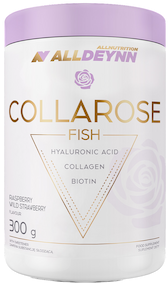
- Collagen content: 5000 mg hydrolysate fish collagen VERISOL F® .
- Additional active ingredients: vitamin C, hyaluronic acid, biotin
- Form: powder to dissolve in water .
- Dose: one scoop (6 g) of powder daily .
- Sufficient for: 50 days .
Product description
Atlantic cod collagen VERISOL F® contained in the formula are easily absorbed collagen peptides of fish origin. Regular supplementation can firm your skinóhand and slow down the ageing process. Your nails will become stronger and stop breaking. The addition of biotin will improve the condition of your hairów. The collagen portion is high enough to also have a good effect on your joints, muscles and bones.
Pros and cons
Atlantic cod collagen VERISOL F® contained in the formula are easily absorbed collagen peptides of fish origin. Regular supplementation can firm your skinóhand and slow down the ageing process. Your nails will become stronger and stop breaking. The addition of biotin will improve the condition of your hairów. The collagen portion is high enough to also have a good effect on your joints, muscles and bones.
Additional information
Atlantic cod collagen VERISOL F® contained in the formula are easily absorbed collagen peptides of fish origin. Regular supplementation can firm your skinóhand and slow down the ageing process. Your nails will become stronger and stop breaking. The addition of biotin will improve the condition of your hairów. The collagen portion is high enough to also have a good effect on your joints, muscles and bones.
Expert and user opinion
Atlantic cod collagen VERISOL F® contained in the formula are easily absorbed collagen peptides of fish origin. Regular supplementation can firm your skinóhand and slow down the ageing process. Your nails will become stronger and stop breaking. The addition of biotin will improve the condition of your hairów. The collagen portion is high enough to also have a good effect on your joints, muscles and bones.
DuoLife Collagen fish collagen 2500 mg
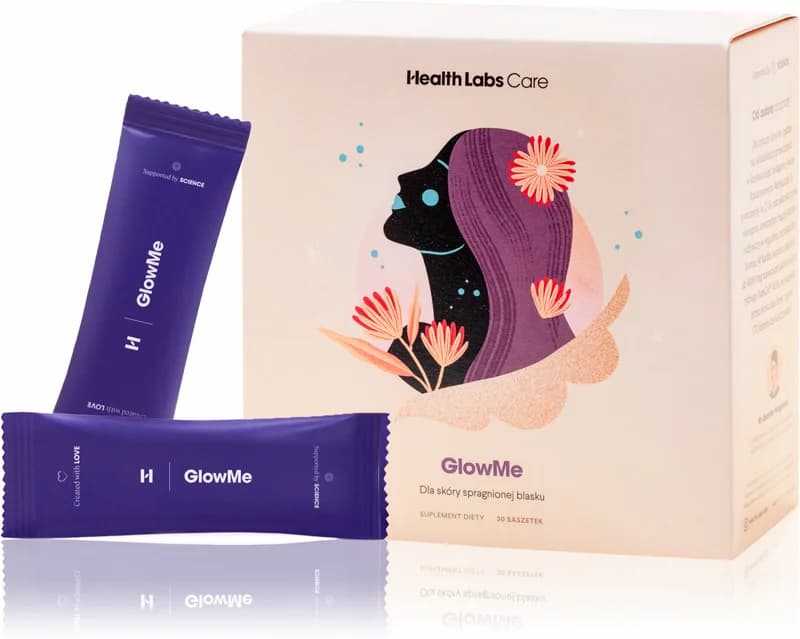
- Collagen content: 2500 mg collagen
- Additional active ingredients: vitamin C, silicon, glucosamine, hyaluronic acid, nettle and bamboo extracts
- Form: liquid to drink .
- Dose:25 ml .
- Sufficient for: 30 days .
Product description
100% natural collagen liquid without unnecessary ingredientsós. The composition of ingredientsós improves the appearance and condition of skinóry, hairów, nails. DuoLife is a good choiceór if you notice the first signs of skinóry ageing or want to stop this process. A tasty liquid, convenient to use.
Pros and cons
100% natural collagen liquid without unnecessary ingredientsós. The composition of ingredientsós improves the appearance and condition of skinóry, hairów, nails. DuoLife is a good choiceór if you notice the first signs of skinóry ageing or want to stop this process. A tasty liquid, convenient to use.
Additional information
100% natural collagen liquid without unnecessary ingredientsós. The composition of ingredientsós improves the appearance and condition of skinóry, hairów, nails. DuoLife is a good choiceór if you notice the first signs of skinóry ageing or want to stop this process. A tasty liquid, convenient to use.
User review
100% natural collagen liquid without unnecessary ingredientsós. The composition of ingredientsós improves the appearance and condition of skinóry, hairów, nails. DuoLife is a good choiceór if you notice the first signs of skinóry ageing or want to stop this process. A tasty liquid, convenient to use.
Pharmovit liquid collagen 10000 mg
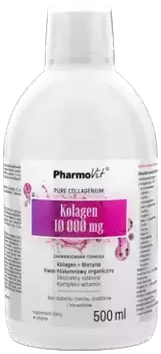
- Collagen content: 10000 mg hydrolysed bovine collagen types I and III .
- Additional active ingredients: hyaluronic acid, natural plant extracts, vitamin C, B vitamins, zinc, vitamin D
- Form: vials .
- Dose: 25 ml .
- Sufficient for: 20 days .
Product description
A solid daily dose of collagen for jointómuscle and bone health and beauty. The duo of collagen and vitamin C has a positive effect on each other, so that „the protein of youth” is better absorbed and more efficiently produced in the body.
Pros and cons
A solid daily dose of collagen for jointómuscle and bone health and beauty. The duo of collagen and vitamin C has a positive effect on each other, so that „the protein of youth” is better absorbed and more efficiently produced in the body.
Additional information
A solid daily dose of collagen for jointómuscle and bone health and beauty. The duo of collagen and vitamin C has a positive effect on each other, so that „the protein of youth” is better absorbed and more efficiently produced in the body.
KFD Premium Collagen+
Product description
High dose of collagen and a real bomb of vitamins C and D and organic sulphur. With this preparation the effects will come immediately. You will improve the firmness of your skin and reduce wrinkles. Your hair and nails will be strong and shiny.
A generous dose of collagen will improve the mobility of your jointsós, benefit your bone system and muscles. Do you do sports and need a product thatós able to keep up with your needs? This product will do the trick.
Pros and cons
High dose of collagen and a real bomb of vitamins C and D and organic sulphur. With this preparation the effects will come immediately. You will improve the firmness of your skin and reduce wrinkles. Your hair and nails will be strong and shiny.
A generous dose of collagen will improve the mobility of your jointsós, benefit your bone system and muscles. Do you do sports and need a product thatós able to keep up with your needs? This product will do the trick.
Additional information
High dose of collagen and a real bomb of vitamins C and D and organic sulphur. With this preparation the effects will come immediately. You will improve the firmness of your skin and reduce wrinkles. Your hair and nails will be strong and shiny.
A generous dose of collagen will improve the mobility of your jointsós, benefit your bone system and muscles. Do you do sports and need a product thatós able to keep up with your needs? This product will do the trick.
Expert opinion
High dose of collagen and a real bomb of vitamins C and D and organic sulphur. With this preparation the effects will come immediately. You will improve the firmness of your skin and reduce wrinkles. Your hair and nails will be strong and shiny.
A generous dose of collagen will improve the mobility of your jointsós, benefit your bone system and muscles. Do you do sports and need a product thatós able to keep up with your needs? This product will do the trick.
Product description
The dietary supplement from Remé contains beef collagen in a patented formula and vitamin C, whichóra aids its absorption. The formula comes in three flavours: neutral, orange-maracuja and strawberry-pomegranate. The formula can effectively support and improve the condition of the skinóry, hairóry and nails.
Pros and cons
The dietary supplement from Remé contains beef collagen in a patented formula and vitamin C, whichóra aids its absorption. The formula comes in three flavours: neutral, orange-maracuja and strawberry-pomegranate. The formula can effectively support and improve the condition of the skinóry, hairóry and nails.
Additional information
The dietary supplement from Remé contains beef collagen in a patented formula and vitamin C, whichóra aids its absorption. The formula comes in three flavours: neutral, orange-maracuja and strawberry-pomegranate. The formula can effectively support and improve the condition of the skinóry, hairóry and nails.
The dietary supplement from Remé contains beef collagen in a patented formula and vitamin C, whichóra aids its absorption. The formula comes in three flavours: neutral, orange-maracuja and strawberry-pomegranate. The formula can effectively support and improve the condition of the skinóry, hairóry and nails.
Check out other Solgar brand supplements.
.
Lysine supplementation - what do you need to know?
.
Lysine supplementation is safe, however, there are some important things to know.
Lysine or L-lysine?
.
The right lysine supplement is a product that will contain free lysine (i.e. preceded by the letter L), or L-lysine. Choose this for its better bioavailability and absorption. L-lysine is easily digestible and goes directly into the bloodstream without loss - you don't need to digest it.
Dosage
.
The safe adult dose of lysine for daily intake is approximately 12 mg for every kilogram of body. In practice, this means that an adult weighing 65 kg should consume approximately 780 mg of lysine per day.
Research suggests that...
.For therapeutic purposes, one should take between 100 and 4,000 mg of lysine per dayand.
.
Dosage depends on age, health or nutritional needs, so always stick to the manufacturer's directions and consult your doctor before starting supplementation.
L-lysine supplementation at a dose of 3 g per day increases the activity of lysozyme, which is a bactericidal enzyme and protects against the spread of infection..
 .
.
Ilona Krzak Master of Pharmacy
.

Zobacz, co może zrobić dla Twojego zdrowia i urody Natu.Care Kolagen Premium 5000 mg -15% z kodem BLOG15
Natu.Care Kolagen Premium 5000 mg, kakao
Natu.Care Kolagen Premium dla zdrowia stawów, skóry, paznokci i włosów. Najlepsza przyswajalność. Optymalna dawka 5 000 lub 10 000 mg. Przebadany przez niezależne laboratorium.
Zobacz więcej
Efekty zaczęłam dostrzegać po około 5 tygodniach. Włosy są nawilżone, przestały też wypadać. Moja wrażliwa cera przestała się przesuszać. Plus za pyszny smak!@Milena Dlugosz
Can you overdose on lysine?
.
Although lysine is considered safe, non-toxic, and there is no indication of a maximum dose, consuming it in large amounts can lead to undesirable side effects.
Some researchers suggest that you should not take more than 6000 mg (6 g) of lysine per dayand
Side effects
.
The most common side effects caused by lysine supplementation , are:
- abdominal pain, .
- diarrhoea, .
- nausea, .
Gastrointestinal complaints usually last a short time and do not require a medical consultation. If symptoms persist, see a doctor.
Rarely.
Very rarely, serious symptoms such as kidney failure or gallstones may occurand.
.
Contraindications and possible interactions
.
The main contraindications to taking lysine supplements are mainlyand:
.
- .
- pregnancy and breastfeeding; .
- calcium supplementation - lysine increases the amount of calcium absorbed, which can lead to so-called hypercalcaemia; .
- lysine protein intolerance - a rare condition in which the body poorly digests lysine and other amino acids; .
- planned surgery in the near future; .
Do not use lysine supplements on your own without consulting your doctor if you are taking:
.
- arginine - high levels of arginine can reduce lysine levels; .
- aminoglycoside antibiotics (e.g. gentamicin, streptomycin or neomycin) - use with lysine may increase the risk of nephrotoxicity, i.e. negative effects on kidney function; .
People with pyridoxine-dependent epilepsy should also be wary of lysine supplementation. Studies have shown that it can generate seizuresand..
 .
.
Ilona Krzak Master of Pharmacy
.

Zobacz, co może zrobić dla Twojego zdrowia i urody Natu.Care Kolagen Premium 5000 mg -15% z kodem BLOG15
Natu.Care Kolagen Premium 5000 mg, kakao
Natu.Care Kolagen Premium dla zdrowia stawów, skóry, paznokci i włosów. Najlepsza przyswajalność. Optymalna dawka 5 000 lub 10 000 mg. Przebadany przez niezależne laboratorium.
Zobacz więcej
Efekty zaczęłam dostrzegać po około 5 tygodniach. Włosy są nawilżone, przestały też wypadać. Moja wrażliwa cera przestała się przesuszać. Plus za pyszny smak!@Milena Dlugosz
See also:
.
- What is freeze-dried collagen? .
- Collagen in tablets
- Collagen powder
- Liquid collagen
- Marine collagen
Summary
.
In summary
- Lysine is an important amino acid that is involved in the construction of proteins, enzymes and hormones.
- Lysine is an important amino acid that is involved in the construction of proteins, enzymes and hormones.
- It aids wound healing, collagen production and the fight against herpes.
- It is an important amino acid.
- Must supply it with food. .
- The best sources of lysine are high-protein foods, including red and white meat, eggs, tofu or legumes. .
- Lysine deficiency is rare, although it can cause symptoms such as weakened immunity, decreased energy, growth problems, dizziness or hair loss. .
- People on restrictive diets, including vegans, are mainly at risk of lysine deficiency. .
- For supplementation, choose preparations with free lysine (L-lysine) - it is better absorbed. .
FAQ
.What vitamin is missing when herpes occurs?
.Perpes is a viral disease and one of the causes of herpes can be insufficient vitamins and minerals, including antioxidants, which are closely linked to your immunity. These may include:
In addition to these, lysine is also important, a reduced amount of which increases susceptibility to herpes.
Why combine lysine with vitamin C?
.Vitamin C and lysine play a huge role in our body. They interact with many processes and can enhance each other's effects, including:
- promoting collagen production, .
- supporting the immune system, .
- improving the absorption of minerals, e.g. iron. .
See also: What destroys collagen in the body and how to remedy it?
.Can I take lysine every day?
.Lysine supplementation is safe and there is no set maximum dose. Some studies suggest not to exceed 6 g (6000 mg) of lysine per day. Lysine overdose can cause gastrointestinal unpleasantness, including nausea and diarrhoea.
.What is the most lysine in?
.The best sources of lysine are foods that are high in protein, including white and red meat, beans, tofu, dark chocolate, almonds, spirulina, halibut, salmon, tuna, quinoa or amaranth.
.What is limited by lysine?
.Research shows that lysine inhibits the production of arginine, an amino acid that is responsible for, among other things, the spread of the herpes virus in your body.
See also: How to look after your health - advice from a doctor, nutritionist and psychologist
.Is my body producing lysine?
No. Lysine is an amino acid exogenous, which means your body does not produce it. It is necessary to supply lysine along with food. If you have a known deficiency, you can start lysine supplementation. Before doing so, consult your doctor to determine the dosage.
Which lysine is best?
.The best lysine is a high-quality supplement that comes from a reputable manufacturer. When choosing a particular product, pay attention to the form (reach only for free lysine - L-lysine), the purity of the composition (check for unnecessary additives and allergens), the dosage (you will encounter mainly 500 and 1000 mg on the market). It is also worth reading reviews on both the product and the manufacturer.
.
Resources
.See all
.Apparent Protein and Energy Digestibility and Amino Acid Availability of Corn and Co-products in Extruded Diets for Nile Tilapia, Oreochromis niloticus. (n.d.). https://doi.org/10.1111/jwas.12184
Chen, C., Sander, J. E., & Dale, N. M. (2003). The Effect of Dietary Lysine Deficiency on the Immune Response to Newcastle Disease Vaccination in Chickens. Avian Diseases, 47(4), 1346-1351. https://doi.org/10.1637/7008
Civitelli, R., Villareal, D. T., Agnusdei, D., Nardi, P., Avioli, L. V., & Gennari, C. (1992). Dietary L-lysine and calcium metabolism in humans. Nutrition (Burbank, Los Angeles County, Calif.), 8(6), 400-405.
.Cold sores: Overview. (2018). In InformedHealth.org [Internet]. Institute for Quality and Efficiency in Health Care (IQWiG). https://www.ncbi.nlm.nih.gov/books/NBK525782/
.Congestive Heart Failure Treated with a Multiple Micronutrient Supplement Program: A Case Report. (n.d.). Journal of Clinical & Medical Case Reports. Retrieved April 27, 2023, from https://www.avensonline.org/fulltextarticles/JCMCR-2332-4120-02-0015.html
Coughlin, C. R., Tseng, L. A., Bok, L. A., Hartmann, H., Footitt, E., Striano, P., Tabarki, B. M., Lunsing, R. J., Stockler-Ipsiroglu, S., Gordon, S., Van Hove, J. L. K., Abdenur, J. E., Boyer, M., Longo, N., Andrews, A., Janssen, M. C., van Wegberg, A., Prasad, C., Prasad, A. N., ... International PDE Consortium. (2022). Association Between Lysine Reduction Therapies and Cognitive Outcomes in Patients With Pyridoxine-Dependent Epilepsy. Neurology, 99(23), e2627-2636. https://doi.org/10.1212/WNL.0000000000201222
Crowther, L. M., Mathis, D., Poms, M., & Plecko, B. (2019). New insights into human lysine degradation pathways with relevance to pyridoxine-dependent epilepsy due to antiquitin deficiency. Journal of Inherited Metabolic Disease, 42(4), 620-628. https://doi.org/10.1002/jimd.12076
Deng, J., Zhang, X., Tao, L., Bi, B., Kong, L., & Lei, X. (2011). D-lysine can be effectively utilized for growth by common carp (Cyprinus carpio). Aquaculture Nutrition, 17(2), e467-e475. https://doi.org/10.1111/j.1365-2095.2010.00783.x
.EFSA Panel on Additives and Products or Substances used in Animal Feed (FEEDAP). (2013). Scientific opinion on the safety and efficacy of concentrated liquid L-lysine (base), concentrated liquid L-lysine monohydrochloride and L-lysine monohydrochloride produced by Escherichia coli (FERM BP-10941) for all animal species, based on three dossiers submitted by Ajinomoto Eurolysine SAS. EFSA Journal, 11(10), 3365. https://doi.org/10.2903/j.efsa.2013.3365
FoodData Central. (n.d.). Retrieved April 26, 2023, from https://fdc.nal.usda.gov/fdc-app.html#/?component=1214
Hall, S. L., & Greendale, G. A. (1998). The Relation of Dietary Vitamin C Intake to Bone Mineral Density: Results from the PEPI Study. Calcified Tissue International, 63(3), 183-189. https://doi.org/10.1007/s002239900512
Hayamizu, K., Oshima, I., & Nakano, M. (2020). Comprehensive Safety Assessment of l-Lysine Supplementation from Clinical Studies: A Systematic Review. The Journal of Nutrition, 150(Supplement_1), 2561S-2569S. https://doi.org/10.1093/jn/nxaa218
Kalogeropoulou, D., LaFave, L., Schweim, K., Gannon, M. C., & Nuttall, F. Q. (2009). Lysine ingestion markedly attenuates the glucose response to ingested glucose without a change in insulin response. The American Journal of Clinical Nutrition, 90(2), 314-320. https://doi.org/10.3945/ajcn.2008.27381
Liao, S. F., Wang, T., & Regmi, N. (2015). Lysine nutrition in swine and the related monogastric animals: Muscle protein biosynthesis and beyond. SpringerPlus, 4(1), 147. https://doi.org/10.1186/s40064-015-0927-5
Lin, L.-Y., Bhate, K., Forbes, H., Smeeth, L., Warren-Gash, C., & Langan, S. M. (2021). Vitamin D Deficiency or Supplementation and the Risk of Human Herpesvirus Infections or Reactivation: A Systematic Review and Meta-analysis. Open Forum Infectious Diseases, 8(1), ofaa570. https://doi.org/10.1093/ofid/ofaa570
Lin, P.-H., Jian, H.-J., Li, Y.-J., Huang, Y.-F., Anand, A., Huang, C.-C., Lin, H.-J., & Lai, J.-Y. (2022). Alleviation of dry eye syndrome with one dose of antioxidant, anti-inflammatory, and mucoadhesive lysine-carbonized nanogels. Acta Biomaterialia, 141, 140-150. https://doi.org/10.1016/j.actbio.2022.01.044
Lo, J. C., Chertow, G. M., Rennke, H., & Seifter, J. L. (1996). Fanconi's syndrome and tubulointerstitial nephritis in association with L-lysine ingestion. American Journal of Kidney Diseases, 28(4), 614-617. https://doi.org/10.1016/S0272-6386(96)90476-X
.Lopez, M. J., & Mohiuddin, S. S. (2023). Biochemistry, Essential Amino Acids. In StatPearls. StatPearls Publishing. http://www.ncbi.nlm.nih.gov/books/NBK557845/
Mailoo, V. J., & Rampes, S. (2017). Lysine for Herpes Simplex Prophylaxis: A Review of the Evidence. Integrative Medicine: A Clinician's Journal, 16(3), 42-46.
Matthews, D. E. (2020). Review of Lysine Metabolism with a Focus on Humans. The Journal of Nutrition, 150, 2548S-2555S. https://doi.org/10.1093/jn/nxaa224
P, S., & G, C. (2017). A RANDOMIZED, OPEN LABEL, COMPARATIVE STUDY OF LYSINE CREAM WITH STANDARD TREATMENT IN PATIENTS WITH SECOND DEGREE SUPERFICIAL BURNS. Asian Journal of Pharmaceutical and Clinical Research, 219-221. https://doi.org/10.22159/ajpcr.2017.v10i5.16431
Pedrazini, M. C., da Silva, M. H., & Groppo, F. C.. (2022). L-lysine: Its antagonism with L-arginine in controlling viral infection. Narrative literature review. British Journal of Clinical Pharmacology, 88(11), 4708-4723. https://doi.org/10.1111/bcp.15444
Pougovkina, O., te Brinke, H., Wanders, R. J. A., Houten, S. M., & de Boer, V. C. J. (2014). Aberrant protein acylation is a common observation in inborn errors of acyl-CoA metabolism. Journal of Inherited Metabolic Disease, 37(5), 709-714. https://doi.org/10.1007/s10545-014-9684-9
PubChem. (n.d.). Lysine. Retrieved April 25, 2023, from https://pubchem.ncbi.nlm.nih.gov/compound/5962
Rutherfurd, S. M., Bains, K., & Moughan, P. J. (2012). Available lysine and digestible amino acid contents of proteinaceous foods of India. British Journal of Nutrition, 108(S2), S59-S68. https://doi.org/10.1017/S0007114512002280
Rutherfurd, S. M., & Moughan, P. J. (2005). Digestible Reactive Lysine in Selected Milk-Based Products. Journal of Dairy Science, 88(1), 40-48. https://doi.org/10.3168/jds.S0022-0302(05)72660-6
.Schencking, M., Vollbracht, C., Weiss, G., Lebert, J., Biller, A., Goyvaerts, B., & Kraft, K. (2012). Intravenous Vitamin C in the treatment of shingles: Results of a multicenter prospective cohort study. Medical Science Monitor, 18(4), CR215-CR224. https://doi.org/10.12659/MSM.882621
Singh, M., Rao, D., Pande, S., Battu, S., Rajeswar Dutt, K., & Ramesh, M. (2011). Medicinal Uses of L-Lysine: Past and Future. International Journal of Research in Pharmaceutical Sciences, 2.
.Smriga, M., Ando, T., Akutsu, M., Furukawa, Y., Miwa, K., & Morinaga, Y. (2007). Oral treatment with L-lysine and L-arginine reduces anxiety and basal cortisol levels in healthy humans. Biomedical Research (Tokyo, Japan), 28(2), 85-90. https://doi.org/10.2220/biomedres.28.85
Smriga, M., Ghosh, S., Mouneimne, Y., Pellett, P. L., & Scrimshaw, N. S. (2004). Lysine fortification reduces anxiety and lessens stress in family members in economically weak communities in Northwest Syria. Proceedings of the National Academy of Sciences of the United States of America, 101(22), 8285-8288. https://doi.org/10.1073/pnas.0402550101
Smriga, M., Kameishi, M., Uneyama, H., & Torii, K. (2002). Dietary L-Lysine Deficiency Increases Stress-Induced Anxiety and Fecal Excretion in Rats. The Journal of Nutrition, 132(12), 3744-3746. https://doi.org/10.1093/jn/132.12.3744
Spallotta, F., Cencioni, C., Straino, S., Sbardella, G., Castellano, S., Capogrossi, M. C., Martelli, F., & Gaetano, C. (2013). Enhancement of lysine acetylation accelerates wound repair. Communicative & Integrative Biology, 6(5), e25466. https://doi.org/10.4161/cib.25466
Sulochana, K. N., Punitham, R., & Ramakrishnan, S. (1998). Beneficial Effect of Lysine and Amino Acids on Cataractogenesis in Experimental Diabetes through Possible Antiglycation of Lens Proteins. Experimental Eye Research, 67(5), 597-601. https://doi.org/10.1006/exer.1998.0547
Terajima, M., Taga, Y., Chen, Y., Cabral, W. A., Hou-Fu, G., Srisawasdi, S., Nagasawa, M., Sumida, N., Hattori, S., Kurie, J. M., Marini, J. C., & Yamauchi, M. (2016). Cyclophilin-B Modulates Collagen Cross-linking by Differentially Affecting Lysine Hydroxylation in the Helical and Telopeptidyl Domains of Tendon Type I Collagen *. Journal of Biological Chemistry, 291(18), 9501-9512. https://doi.org/10.1074/jbc.M115.699470
Tipton, K. D. (2015). Nutritional Support for Exercise-Induced Injuries. Sports Medicine (Auckland, N.z.), 45, 93-104. https://doi.org/10.1007/s40279-015-0398-4
Tomé, D., & Bos, C. (2007). Lysine Requirement through the Human Life Cycle. The Journal of Nutrition, 137(6), 1642S-1645S. https://doi.org/10.1093/jn/137.6.1642S
Ukmar-Godec, T., Hutten, S., Grieshop, M. P., Rezaei-Ghaleh, N., Cima-Omori, M.-S., Biernat, J., Mandelkow, E., Söding, J., Dormann, D., & Zweckstetter, M. (2019). Lysine/RNA-interactions drive and regulate biomolecular condensation. Nature Communications, 10(1), Article 1. https://doi.org/10.1038/s41467-019-10792-y
Vuvor, F., Mohammed, H., Ndanu, T., & Harrison, O. (2017). Effect of lysine supplementation on hypertensive men and women in selected peri-urban community in Ghana. BMC Nutrition, 3(1), 67. https://doi.org/10.1186/s40795-017-0187-6
Wang, W., Xu, Y., Chi, S., Yang, P., Mai, K., & Song, F. (2020). Dietary Lysine Regulates Body Growth Performance via the Nutrient-Sensing Signaling Pathways in Largemouth Bass (Micropterus salmoides). Frontiers in Marine Science, 7. https://www.frontiersin.org/articles/10.3389/fmars.2020.595682
Wu, M., Cronin, K., & Crane, J. S. (2023). Biochemistry, Collagen Synthesis. In StatPearls. StatPearls Publishing. http://www.ncbi.nlm.nih.gov/books/NBK507709/
.Yamauchi, M., & Sricholpech, M. (2012). Lysine post-translational modifications of collagen. Essays in Biochemistry, 52, 113-133. https://doi.org/10.1042/bse0520113
Yamauchi, M., Terajima, M., & Shiiba, M. (2019). Lysine Hydroxylation and Cross-Linking of Collagen. Methods in Molecular Biology (Clifton, N.J.), 1934, 309-324. https://doi.org/10.1007/978-1-4939-9055-9_19
Jelonek, L. (2023). Collagen. Everything you need to know (B. Turczynski, ed.; 1st ed.). Natu.Care. https://books.google.com/books?vid=9788396887801
..
Editorials
Meet the team

Ilona Krzak obtained her Master of Pharmacy degree from the Medical University of Wrocław. She did her internship in a hospital pharmacy and in the pharmaceutical industry. She is currently working in the profession and also runs an educational profile on Instagram: @pani_z_apteki

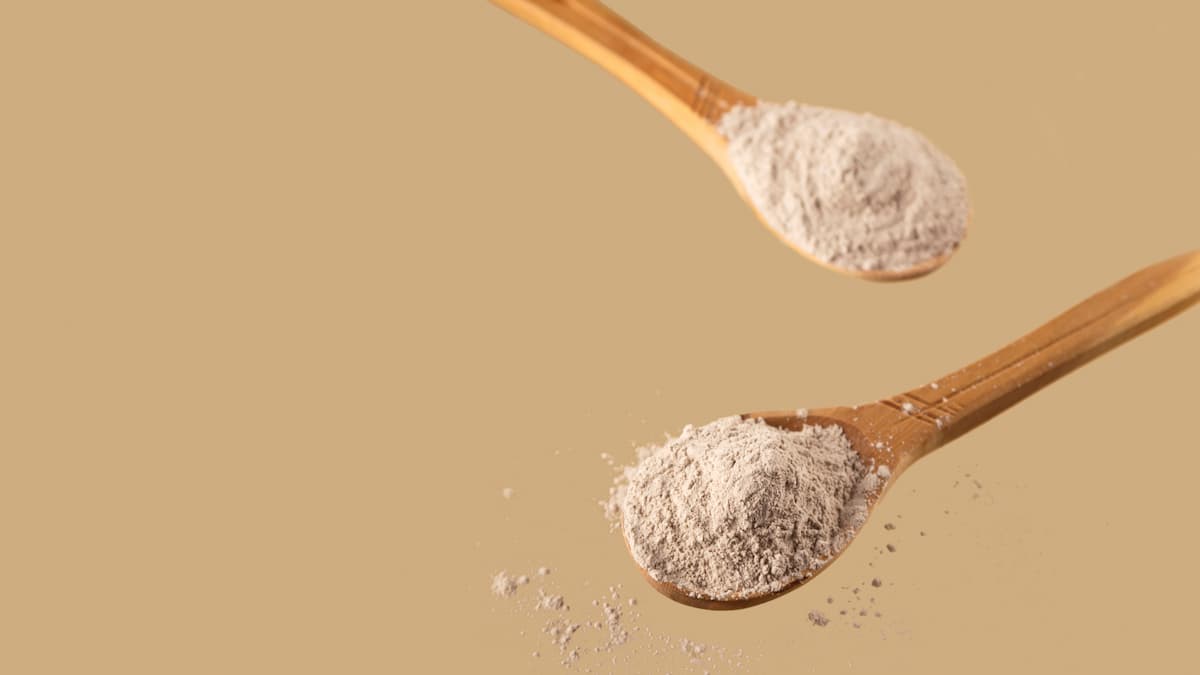
Everything you want to know about COLLinstant collagen.

Collibre collagen is an interesting supplement in shot form.
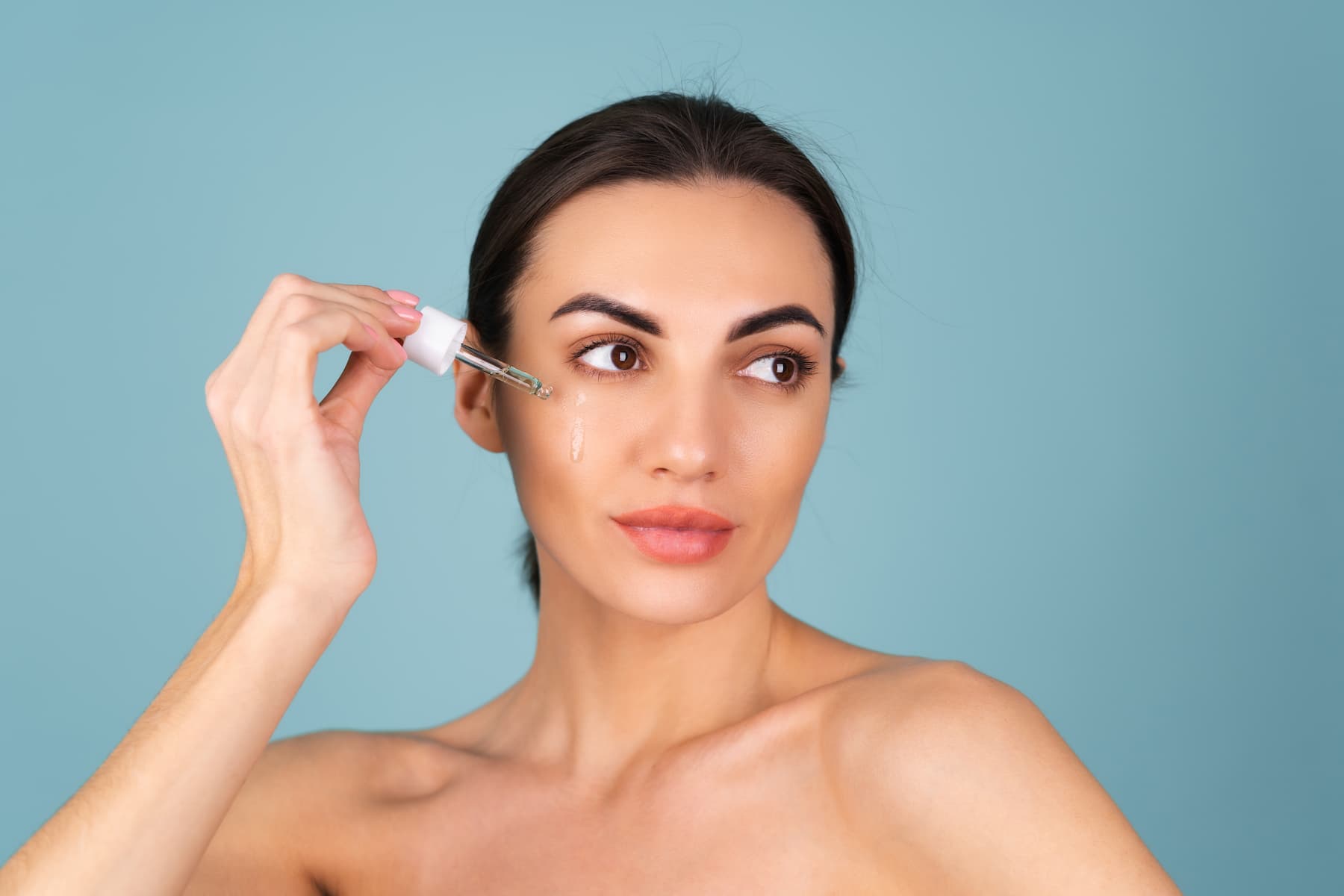
Solgar collagen with hyaluronic acid is a dietary supplement that supports skin and joint health.
